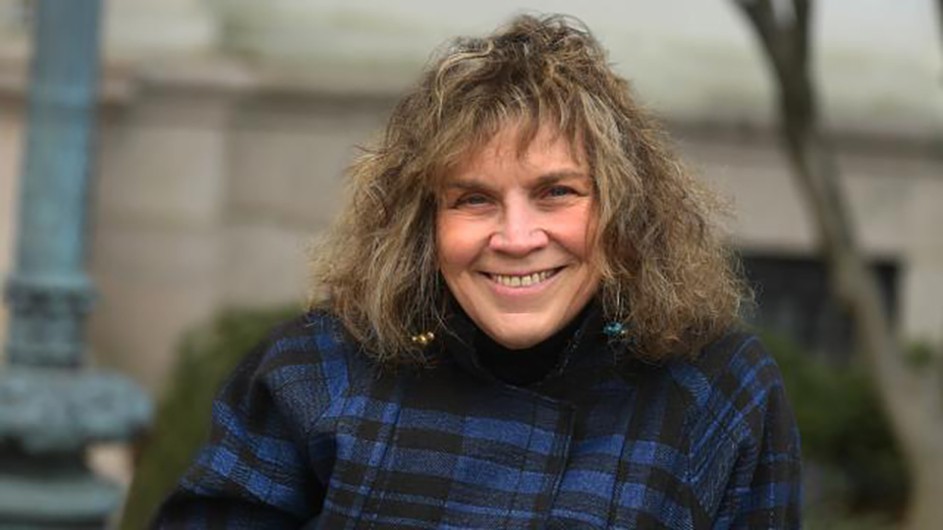Carol Becker Will Deliver a Humanities Lecture at Columbia's Medical Center
The School of the Arts dean will speak about Thomas Merton and Ernesto Cardenal, both writers, priests, and revolutionaries who attended Columbia.
The Dean’s Distinguished Lecture Series was founded at the Vagelos College of Physicians and Surgeons in 1981 to provide a forum for interdisciplinary exchange in the basic sciences, clinical sciences, and humanities. The lectures are designed to emphasize the cross-collaborative nature of scientific inquiry, and enrich scholarly exchange at the intersection of art and science.
On October 27, 2022, Professor of the Arts and Dean of the School of the Arts Carol Becker will deliver the Dean’s Distinguished Lecture in the Humanities at the Columbia University Irving Medical Center (CUIMC). Her lecture is titled, “Ernesto Cardenal and Thomas Merton: Poets, Priests, Mystics, Revolutionaries.”
Columbia News spoke with Becker to learn about her interest in Cardenal and Merton. Both men attended Columbia, and spent their lives committed to the Church, yet struggled with its structures. They both also worked for radical change and the transformation of society. Cardenal, whom Becker knew personally, participated in the Nicaraguan revolution that toppled the Somoza dictatorship. Merton was an anti-Vietnam War and Civil Rights advocate.
How did this lecture come about?
Last spring, when I was invited by CUIMC to deliver the Dean’s Distinguished Lecture in the Humanities for 2022, I asked if I could present something new that I was hoping to write. Of course, they said yes. In the past, other presenters had read from parts of books-in-progress or described research they were working on. This invitation was just the permission I needed to begin an essay that was already formulating in my mind about Thomas Merton and Ernesto Cardenal.
In 2015, when I visited the Rare Book and Manuscript Library exhibition, Seasons of Celebration: Thomas Merton at 100, I learned a great deal. Columbia Libraries have a fantastic portion of the Merton archive because he received both a bachelor’s degree (CC ’38) and a master’s degree (GSAS ’39) from the university. His time here was incredibly formative, culminating in his desire to become a writer. During this period, he also had a religious conversion that led him to become a Trappist monk.
At the exhibition I became more aware of Merton’s correspondence with many religious, political, and cultural figures. For the first time, I learned about his extensive correspondence and friendship with Nicaraguan poet, priest, and artist Ernesto Cardenal, who also attended Columbia, studying for a master’s degree here in North American literature from 1948 to 1950. Although I have been a great admirer of Cardenal’s poetry for a long time and was fortunate to know him personally, I was not aware of his close connection to Merton. Once I began to read their letters to each other and learned about the circumstances surrounding their friendship, I became even more intrigued and moved by the complexity of their individual lives and struggles, as well as their shared political commitments.
Do you think these two men succeeded in living lives that balanced religious belief and observance with efforts to transform society in radical ways?
Both were men of extraordinary courage. They each had a deep spiritual experience that led them to the priesthood, yet their adherence to certain religious values was profoundly connected to their commitment to activating a just society. For Cardenal, the Gospels were the key to his understanding of religious doctrine and the Christian spirit of good will toward humanity. Merton believed that contemplation and silence would help liberate the world.
They both dedicated their lives to imagining a more equitable and sane future. Some of this imagining they did together as a conversation between two hemispheres. But for many reasons, it was not easy for either of them to live within the constraints of the Church. Although the Church provided a structure that allowed them to develop spiritual lives, it also greatly inhibited the freedom they needed to pursue the complexity of their own identities as well as their political commitments.
Will your essay be published?
I have no plans to publish this essay in its present form, but I am already thinking that the research might lead to a small book or perhaps a different creative entity that I have yet to imagine. Right now, it is enough of a challenge to conceptualize how to concisely present this rich material to a varied audience whose members might already know a great deal about Merton and Cardenal, as well as to those who might not.
Is there anything you want to add?
At a time when it is difficult to envision a just, global future, it is exhilarating, joyful, humbling, and grounding to return to the work of these two writers, thinkers, contemplatives, artists, poets, and activists. Because of the integrity with which they lived their lives and the brilliance and persistence with which they pursued their creative endeavors, both Merton and Cardenal were able to bring their deepest political concerns into public consciousness in unexpected ways; that’s inspiring.
